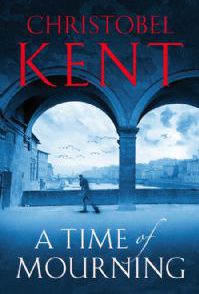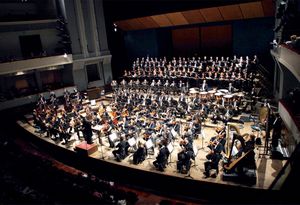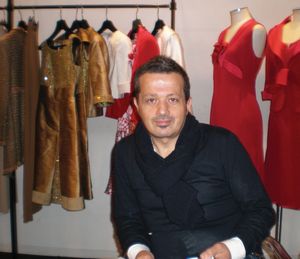It’s late afternoon on a sweltering summer Sunday and
we are on a family mission to find Einstein’s grave. We have already driven
down the hill and up again and although the view is enchanting, the atmosphere
in the car is becoming fraught.
We are about to give up when salvation looms ahead:
not a country churchyard but even better, a casa del popolo-the local bar and
community centre, not to mention haven for Sunday drivers and their mutinous
families.
Inside, the bar is cavernous, cool and strangely
peaceful. The football season is over and the TV screen in the corner is mute.
The only customers this afternoon are some old-timers playing a leisurely game
of briscola at a table near the door. When I
approach them to ask for directions they look baffled. Then one of them, who
looks old and frail enough to have been a personal acquaintance of Einstein’s,
waves his walking stick in the direction of the valley. Try the Badiuzza
Cemetery. Follow the bend in the road; you can’t miss it.
Miss it we do, several times. The tiny cemetery is off
the main road along a dirt track and hidden from view by a brick wall, itself
in danger of being submerged by a tangle of tall grass and bramble thorns. When
at last we push open the creaking, rusty gate, we are disappointed. There must
be a new cemetery nearby, one with glistening marble headstones and neatly
tended flowerbeds, for this one is ragged and neglected. There are one or two
recent graves but most are unkempt. Some headstones are chipped and others have
toppled over and lie like rubble in the dust. This hardly seems a fitting
resting place for an Einstein. But then we see a massive steel sculpture in the
far corner and beneath it, two white marble slabs. There is even a vase full of
fresh flowers. We read the names. We have found it: Einstein’s grave.
The lack of signage can easily be explained. It is not
the famous scientist who is buried here but his cousin Robert, along with his
wife and their two daughters. Robert may be the lesser-known Einstein, but his
story is remarkable and tragic and deserves to be told.
When World War II broke out, Robert Einstein was
living just south of Florence with his Italian wife, Nina Mazzetti, and their daughters Annamaria
(Cicci) and Luce. Also living with them were their two young orphaned nieces.
It was the elder niece, Lorenza Mazzetti, who later wrote about their
experiences in her prize-winning autobiographical novel Il Cielo Cade (‘The Sky Falls’).
The novel describes the events of 1944 through the
eyes of a child. The little nieces attend the local school, where they perform
nationalist songs for the local fascist chief. After school, they play in the
woods with the children of the local contadini and spy on the
Einsteins’ intellectual guests. They speak French and English at home and learn
the Florentine dialect from the servants. From the local priest they learn that
their uncle is Jewish and make it their mission to save his soul from the
devil. It is only as the summer wears on and the front line of the war shifts
nearer Florence that they become aware of a more imminent
danger.
In the summer of 1944, following the Allied landings,
the German army in Italy was retreating northwards. The first soldiers to be billeted at the
Einstein/Mazzetti villa were courteous and respectful. In her novel, Lorenza
describes how the general played chess with her uncle while the soldiers
flirted with the older girls and joined the children in their doll tea parties.
Those Germans soon left and others came and went as the main road became a
constant stream of military cars and lorries moving slowly north towards Florence. Then suddenly the countryside was silent again: even
the gunfire ceased. It seemed as if the war was over.
One night in early August, a group of SS soldiers
arrived at the villa. By this time Robert Einstein had finally been persuaded
by the local partisans to hide out with them in the woods, leaving his wife and
the four girls at home with the servants. Unable to find Robert, the soldiers
set about destroying the family home, smashing the grand piano and flinging the
beautiful mirrors and paintings to the floor. Nina Mazzetti and her daughters
and nieces were locked in a room and later questioned.
Towards dawn, the local contadini heard machine-gun fire and saw with horror that the villa
was ablaze. Later, in the charred remains of the salon that had once rung with
the voices of his beloved family, Robert Einstein found the bodies of his wife
and daughters. Because their surname was Mazzetti and not Einstein, his young
nieces were spared. Eleven months later, unable to resign himself to his loss,
Robert Einstein committed suicide.
It is thought that Robert Einstein was sought out by
the SS on the orders of Hitler himself as a way of punishing his famous cousin.
By then, Albert was living in the United States, where he had become a prominent symbol of anti-Nazi
sentiment. Some months after the death of his wife and daughters, Robert had
written to Albert, expressing his hope that the murderers would be identified
and punished. They never were.
Now in the Badiuzza Cemetry we stand silently reading
the inscription on the gravestones. On one it is written that Nina and her two
daughters were ‘trucidati dai tedeschi il
3 agosto 1944′; the other notes that Robert Einstein had, some months later, ‘joined
his loved ones.’ Someone has left some pebbles on his grave in the Jewish
tradition. In the vase, we arrange the flowers we have brought. It is quiet
except for the humming of insects and the rustle of some small animal in the
long grass on the other side of the wall. There are no other sounds, not even
of children playing. We are puzzled by the memorial sculpture but as we turn at
the gate for one last look, its meaning becomes suddenly clear. As the evening
sun reflects off the steel, it seems to catch fire and burst skywards like a
flame.
Il Cielo Cade by Lorenza Mazzetti is published by Sellerio editore;
a film of the same name stars Isabella Rossellini.
Robert Einstein, Nina Mazzetti, Annamaria Andazzetti
and Luce Mazzetti are buried in the Badiuzza Cemetery between San Donato in Collina and Rignano sull’Arno. If you visit, be sure to lay a flower on their graves.







